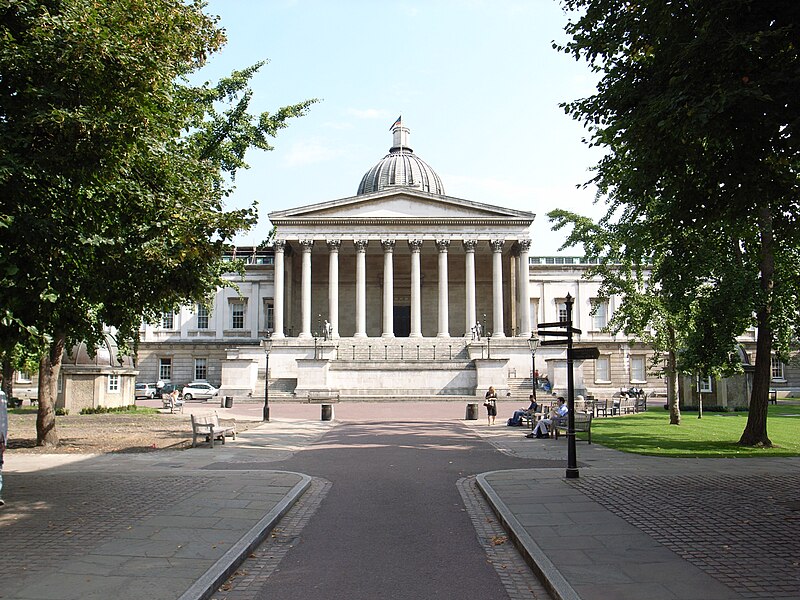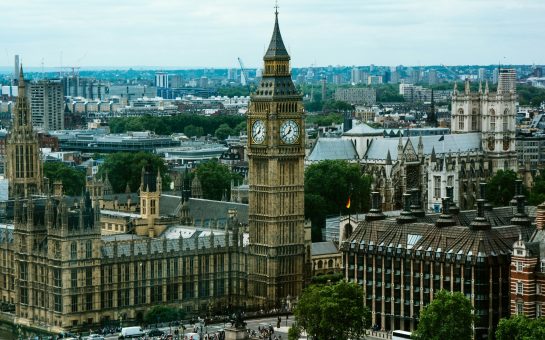The number of first generation scholars at University College London was less than half the national average last year, new figures show.
Just over a quarter of UK undergraduate students at UCL were first generation scholars in the academic year 2023/24, classified as students whose parents did not receive higher education qualifications.
This is compared to the national average of two thirds measured by the Oxford Review of Education.
Aya Elgool, a first generation student at UCL, said: “It’s sad and a shock. It’s difficult for me to grasp, I see UCL as a very socially mobile university.”
She has recently been employed by the university as an Access and Widening Participation Student Ambassador and has faith in the institution’s efforts to broaden its first generation population.
She continued: “It is very difficult to be a first generation student and have all of that pressure of succeeding at university as the first in your family to be there.”
Elgool felt that any strategy to tackle the first generation scholar population would also need to take into account the intersectional identities of class and race.
She said: “It’s very different speaking to someone that’s white and of a less socially mobile background versus someone who is of an ethnic minority because we lack a sense of racial privilege.
“Being from an ethnic background, I see bigger differences there than in being a first generation student, because it’s easier to see if they are from an ethnic background than whether they are a first generation student.”
A report from HEPI found that while the term first generation applied disproportionately to students of minority ethnicities, these students enrolled in higher education at greater levels than their white counterparts.
However, first generation students generally had lower rates of entry into highly selective higher education institutions, including Russell Group universities.
Freedom of Information requests were sent to all colleges of the University of London requesting their UK undergraduate first generation student population in recent years.
LSE’s share was similar to UCL’s, at around 26%, while Royal Holloway had the highest first generation scholar population last year, at 56%.
The Royal Academy of Music and Central School of Speech and Drama had the lowest, at 11%.
Of the University of London colleges which replied positively and with statistically significant data to Freedom of Information requests, none exceeded the national average of first generation scholars.
Harriet Coombs, an education researcher, said that the UCL figures were worrying.
She said: “We’ve got to show that there is provision for first generation students.
“These figures reflect the increasing cost of living challenge and, in general, some of the rhetoric about going to university, particularly from the former Conservative government.
“There was a lot of talk about Mickey Mouse degrees.”
She said that first generation scholars are affected by perceptions of who is welcome at university, where she claimed that private school students are disproportionately represented.
She continued: “People are concerned about snobbery and fitting in.
“They are affected by what sort of provision they think they’re likely to get at university.
“Also, wanting to be around peers that are similar to them is human nature.
“I wasn’t prepared, going to a Russell Group university, that I would be surrounded by people from wealthier backgrounds.”
Research in the Oxford Review of Education showed the among the 27% of young people to achieve a university degree by age 25, 18% were the first in their family to do so.
Figures from the Higher Education Statistics Agency showed the growth of first generation scholars in UK universities has suffered in recent years.
Around 505,000 first generation UK scholars enrolled in higher education in 2018/19, including all qualifications such as apprenticeships and postgraduate degrees, as well as undergraduate courses.
This rose to almost 550,000 in 2021/22 but fell to 536,000 the following year.
In the same period, enrolments among non-first generation scholars rose from 585,000 to 638,000.
First generation scholar figures are strongly correlated to state educated higher education entrants.
As first generation scholar entrants have risen in recent years, so too have state educated higher education enrolments, with similar falls in the last year of available data.
HEPI research found that graduates in England whose parents did not obtain a degree are less likely to than others to have attended an independent school, 4% compared to 14%.
In response to the headline figures, a UCL spokesperson said: “Opening up higher education is a top priority for UCL and through our Widening Participation programme, which is one of the largest in the UK, we work at all levels from primary school through to mature students returning to education, to help inspire and raise the aspirations of groups who are under-represented at university.
“In 2019, as part of this ongoing commitment we introduced Access UCL, our ambitious contextual offers programme, which has increased the proportion of students from low participation neighbourhoods and areas of deprivation.
“This year we met the stretching targets set out in our Access and Participation Plan, and agreed with the Office for Students to reduce the gaps in access between the most and least represented groups, and have seen the proportion of students from the most under-represented groups increase by 27%.”
Image: stevecadman via Wikimedia Commons under CC BY-SA 2.0 licence





Join the discussion